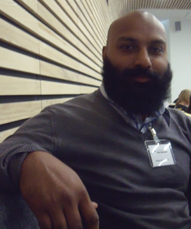Among the attenders at the University of Portsmouth annual counter-fraud and forensic accounting conference, featured in the July print issue of Professional Security magazine, was Peter Stiernstedt. He spoke during one of the breaks to Mark Rowe.
Briefly, he is a chapter board member of ASIS in Sweden; for ten years he was a consultant working mainly at a strategic level on risk, security and crisis management. He took a masters degree at the University of Portsmouth and is now at work on a doctorate, with Prof Mark Button as his superviser, the Director of the Centre for Counter Fraud Studies at the Institute of Criminal Justice Studies, at Portsmouth.
Peter’s doing research on Europeans’ perception of fraud. He pointed to the European Commission’s first EU-wide Anti-Corruption Report released earlier this year which among other things identified serious shortcomings in the national efforts of EU member states. As Peter says, the report did identify questions, such as; how different countries’ citizens perceive corruption as a problem. Does the perception of people indicate that there is corruption? And what does that say about the culture of various countries? Simply put, Scandinavia is commonly seen as having little corruption, compared with southern Europe. And the UK stands somewhere in the middle between those two extremes. The perception and the actual corruption is probably quite attuned, Peter suggests.
The aim of his and Mark Button’s research; to seek some answers to these questions, and to see if they can find some theory or model to explain: does perception of corruption say anything about the level of corruption in a country? If a country makes changes, to counter corruption, do they have an effect on the perception of corruption? How do the two relate? Is it different for southern and northern Europe?
In Sweden and Norway, countries perceived to be low in corruption, is it that case that they are truly free of corruption – which Peter would dispute, given the repeated cases of corruption made public, which keep catching the public by surprise. What are the cultural influences behind this? Is it that the UK, for example, has a more practical mind to deal with corruption? Or Greeks, for instance, are more attuned to corruption as part of their everyday lives, which affects how they answer surveys on the subject?
Featured in the June print issue of Professional Security was a report by the anti-corruption campaign group Transparency International, which found that corruption risks persist in European Union (EU) institutions.
For Peter’s background visit https://www.linkedin.com/profile/view?id=118620320.










